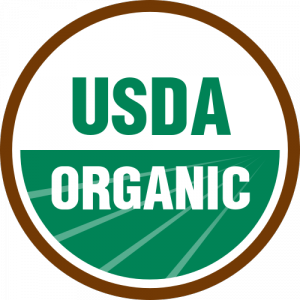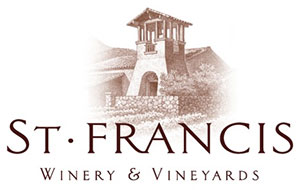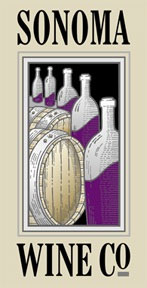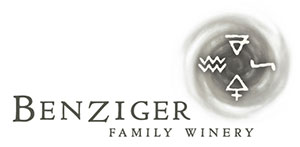Sustainable Wines versus Organic Wines
W hether you are a long time wine buff with a sophisticated pallet, or a new wine lover just beginning to explore—champagnes, aperitifs, white wines, red wines and dessert wines are fine selections sure to complete any occasion.
Wine is a great pairing with almost any cuisine and has been savored since the beginning of Western civilization. Since then, it has gained and lost prominence through the ages, when other drinks have momentarily taken its place. However, it has always found its way back to our tables, because of its sophisticated versatility.
Still want to work on your diet in 2014? You’re in for a treat! Wine is also good for your health—in moderation of course—thanks to the antioxidant properties of grapes. But there’s a hidden ingredient in all commercial wines we think you should know about, sex appeal. Well kind of, it starts with an “S.”
Wineries have been adding sulfite with this romantic beverage, since as far back as the Roman times. Sulfites—which come from sulphur—are added to commercial wines as preservatives and to make your red wine a more attractive shade of red. Essentially, most foods that need preservatives to extend its shelf life, use sulfur dioxide. The fresher the food, the better for your health and the longer you can enjoy it, right?
“But I don’t want to give up my Merlot!” you say. We hear you! There’s a greener alternative that doesn’t have sulfites, chemical pesticides or GMOs; so it only has the goodness of the grapes straight to your glass. Some people are hypersensitive to sulfite and/or it gives them an allergic reaction, so we have an alternative—organic wines. Organic wines are becoming more popular among the savvy wine-drinkers. Even so, you may hear raving wine fans talk about the brilliance of Merlot and how they crafted a fabulous list of quality organic wines.
Here’s a fun fact: did you know our Northern-California vineyards are very water demanding, because they’re nested right in the middle of a drought area? Our wine growers are some amazing workers, who have to deal with the complexity of feeding our grapes. Climate change is problematic for some areas, making it necessary to re-route and transport water from even farther than normal.
 Want to know the carbon footprint of that wine you have in your pantry? 12,144 kg of CO2, assuming it’s local. No one wants to be the big foot bandit. However, that being said, you should start thinking organic and eco-friendly. You can identify organic wines, thanks to the USDA-recognized third-party certifier stamp on the bottle. This stamp certifies your wine is made with no preservatives, only with organically grown grapes and yeast for the fermentation.
Want to know the carbon footprint of that wine you have in your pantry? 12,144 kg of CO2, assuming it’s local. No one wants to be the big foot bandit. However, that being said, you should start thinking organic and eco-friendly. You can identify organic wines, thanks to the USDA-recognized third-party certifier stamp on the bottle. This stamp certifies your wine is made with no preservatives, only with organically grown grapes and yeast for the fermentation.
Want to have celebrity status in this industry? Winemakers should explore the possibilities of diversifying their skills to obtain certification; which is a sure way to enhance their operation and have an edge in this competitive market. Consider either the California Sustainable Winegrowing Alliance (CSWA) or Sustainability in Practice (SIP), since both meet the criteria of good soil conservation, water quality, the use of organic-approved pesticides, water and energy conservation. Greenhouse gas emissions also enter the equation in the case of CCSW. As you can see, sustainable wines are about the winemaking process; while organic wines are about the ingredients used.
 The top three sustainable wineries that should be on everyone’s list is St. Francis Winery & Vineyards, winner of the “Best Practices Award,” in 2009 and proud owner of a 457-kilowatt solar electrical system, which was installed back in 2004. They’ve been saving tons of CO2 for a while now!
The top three sustainable wineries that should be on everyone’s list is St. Francis Winery & Vineyards, winner of the “Best Practices Award,” in 2009 and proud owner of a 457-kilowatt solar electrical system, which was installed back in 2004. They’ve been saving tons of CO2 for a while now!
 Sonoma Wine Company—which former British Prime Minister, Tony Blair, was present during the inauguration of their solar co-generation system—were the first American winery to achieve the coveted ISO 22000 certification for top quality.
Sonoma Wine Company—which former British Prime Minister, Tony Blair, was present during the inauguration of their solar co-generation system—were the first American winery to achieve the coveted ISO 22000 certification for top quality.
 Want to go beyond organic and sustainable? Is that possible? Yes! Check out Benziger Family Winery; a biodynamic vineyard and farm that brings together all the goodness of sustainable practices, animal welfare and organic farming. Of course, there are other noteworthy vineyards of similar qualities and practices, but the ones featured are regional to Northern California.
Want to go beyond organic and sustainable? Is that possible? Yes! Check out Benziger Family Winery; a biodynamic vineyard and farm that brings together all the goodness of sustainable practices, animal welfare and organic farming. Of course, there are other noteworthy vineyards of similar qualities and practices, but the ones featured are regional to Northern California.
Therefore, no matter the occasion, whether you favor reds or whites, love new wines or aged, when you keep it green for your health, you will also enhance the planet’s well-being. ¡Salud!

